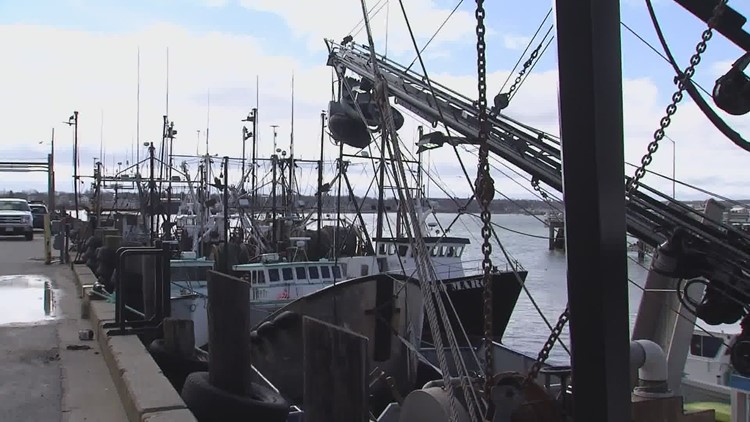PORTLAND, Maine — The federal government has approved a proposal to increase at-sea monitoring of some commercial fishing trips to 100%.
At-sea monitors are workers who collect data on board commercial fishing boats to help inform regulations and management of species. The government approved the new, higher percentage of trip cover on Tuesday, said Michael Pentony, a regional administrator with the National Marine Fisheries Service.
The rules apply to valuable species that are harvested in the Northeast such as cod, haddock and flounder. Pentony said the new rules will replace the old process of calculating a target for the level of monitoring coverage every year.
The coverage target will instead be 100% for four years as long as federal funding can support agency and industry costs, he wrote in a letter to fishery managers.
At-sea monitoring is a controversial subject in commercial fisheries because many fishermen see it as an added cost that complicates fishing trips. The practice is depicted in the 2021 movie “Coda.”
The new rules are arriving at a time when cod, a key groundfish species, is in peril. U.S. fishermen brought more than 100 million pounds (45.4 million kilograms) of cod to the docks per year in the early 1980s, but the 2020 catch was less than 2 million pounds (900,000 kilograms). Overfishing and environmental change have led to tighter regulation of cod fishing.
The new rules revise the monitoring program “to improve the accounting and accuracy of collected catch data,” Pentony wrote.
The rules also state that in a given year the at-sea monitoring coverage target could be less than 100%, and instead set at the maximum level for which there are sufficient federal funds to cover costs to the agency and industry, Pentony said. The rules also allow some electronic monitoring technologies as an alternative to human workers, he said.
While many fishermen have bristled at the move toward more monitoring, environmental groups have cheered the changes.
“This is a great day for New England’s historic groundfish fishery, including the chronically overfished Atlantic cod,” said Gib Brogan, a campaign director with Oceana.



